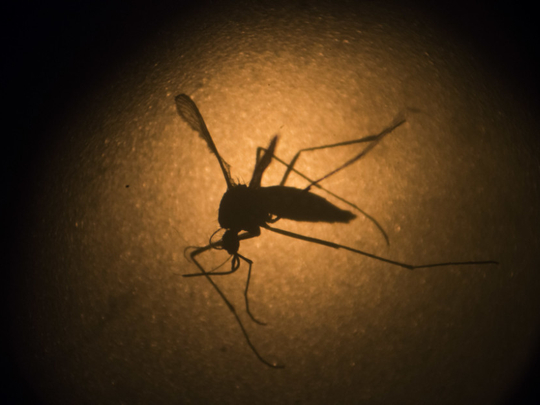
Manila: Six new cases of the mosquito-borne viral disease, Zika, have been reported in various areas of the country, as health officials expect the number of cases to rise.
In a press briefing on Tuesday, Health Secretary Paulyn Jean Rosell-Ubial said the Research Institute for Tropical Medicine reported that a total nine cases have been reported this year including the six new ones.
“Of the total nine cases this year, six were females; ages of these nine cases ranged from nine to 49 years. Seven out of nine cases came from Iloilo City (Western Visayas); one from Cebu City (Central Visayas); and one from Laguna Province (Calabarzon in the northern main island of Luzon),” she said.
“All mentioned cases had no history of travel to other countries within a month preceding the onset of illness. All presented with skin rashes accompanied by joint pains or fever or conjunctivitis and are expected to have recovered by this time.” Rosell-Ubial added.
Zika is transmitted through the bite of the Aedes aegypti mosquito, the same insect responsible for the spread of the dengue virus.
But while symptoms of infection from the two diseases are similar, Zika, according to experts, can cause defects to a child whose mother contracted the virus while still pregnant.
Zika virus infection can cause the still unborn child to develop microcephalus or unusually small head.
Health Assistant Secretary and Spokesperson Dr Eric Tayag, during the same press briefing at the Department of Health headquarters in Manila, said with the new cases reported this year, the total number of Zika cases over the past four years is now 14.
The spike in the number of cases and its rapid spread to various parts of the country have prompted the Department of Health to activate its emergency response teams.
“I would not be surprised if there are other cases that will be reported in the coming days,” he said.
Nevertheless, despite the increasing number of cases, they are still not considering the recent cases as “active transmission”.
“We have no active transmission, this means that we can still take steps to prevent the cases from spreading to other areas,” he said.
He explained that there is “active transmission” when the number of cases multiply rapidly and has become widespread. So far, the manner of transmission is mainly through mosquito bite.
Tayag said when the virus is transmitted through sexual contact, then it becomes more difficult to detect.
He said that it appears that the current transmission is only confined to the affected household.
“However, continuous monitoring of suspected cases for another month will be implemented by health department to determine the extent of local transmission in the country,” he said.
So far, the Philippines has yet to report a death from Zika virus infection.
Rosell-Ubial said the country’s ports of entry will continue to monitor the arrival of passengers as a precaution to prevent the spread of the disease.











